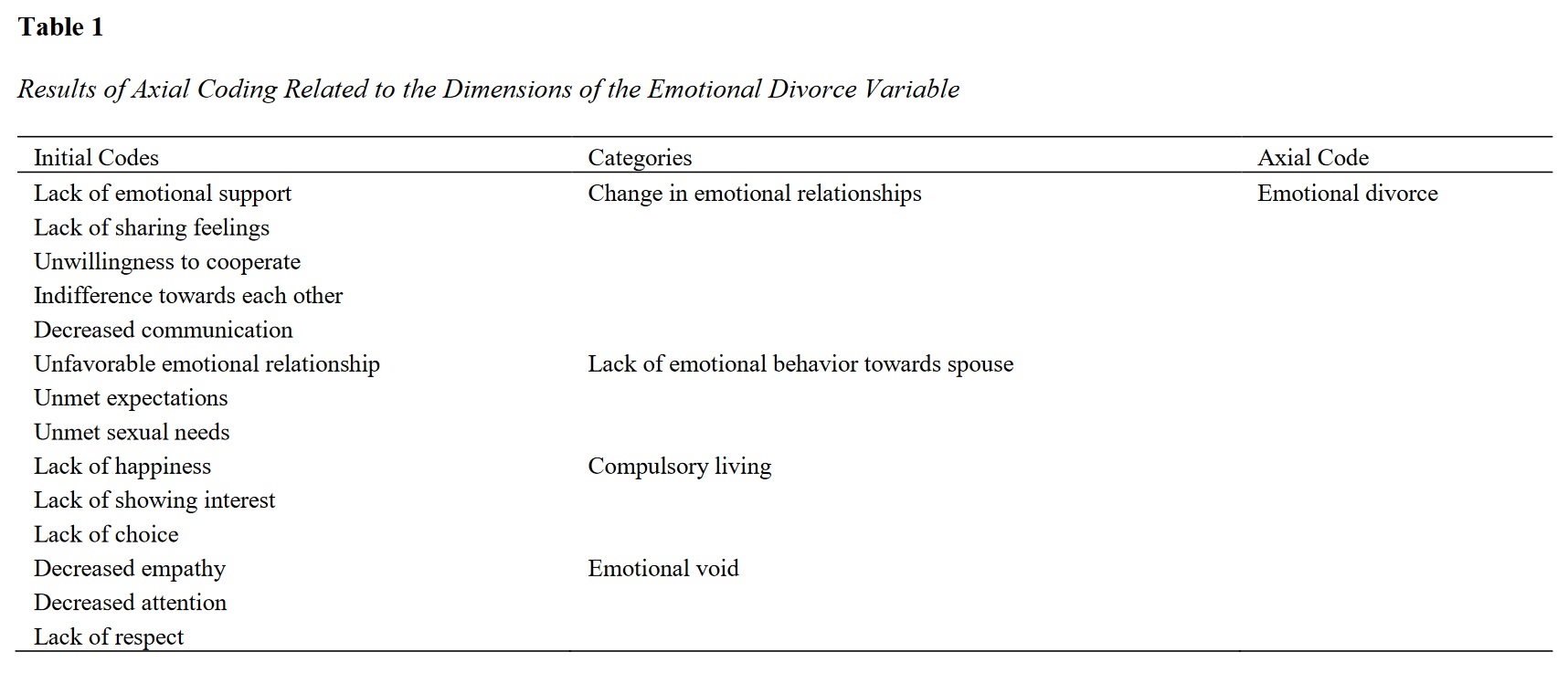Identifying the Sociological Dimensions of Emotional Divorce and Typology of its Types in Tehran
Keywords:
Emotional divorce, Sociological dimensions, Typology, Qualitative research, Marital relationships, Communication skills, Family counselingAbstract
Objective: This study aims to identify the sociological dimensions and typology of emotional divorce in Tehran.
Methods and Materials: The study employs a qualitative research approach with a phenomenological strategy. The statistical population includes couples aged between 25 to 40 years. Using purposive sampling, 21 participants were selected based on theoretical saturation. Data collection was conducted through semi-structured interviews. For data analysis, open coding and axial coding processes were used to extract relevant structures and indicators. The reliability of the coding process was ensured through re-coding and high levels of agreement.
Findings: The research identified four main categories of emotional divorce, encompassing 14 initial codes and 55 semantic codes. The primary dimensions identified include compulsory living, lack of emotional behavior towards the spouse, emotional void, and changes in emotional relationships. Additionally, six types of emotional divorce were identified: lack of emotional support, communicative divorce, sexual divorce, reduced empathy, attentional divorce, and respect divorce. These types were derived from a detailed analysis of 82 semantic codes collected from the interview data.
Conclusion: Emotional divorce is a complex and multifaceted phenomenon with profound and long-lasting effects on family and social relationships. The study underscores the importance of considering sociological factors in mitigating the negative impacts of emotional divorce. The findings suggest that appropriate training in communication and emotional management skills can significantly reduce the likelihood of emotional divorce. These insights are valuable for family counselors, psychologists, and policymakers in developing effective strategies and policies to enhance marital quality and prevent emotional divorce.
Downloads

Downloads
Additional Files
Published
Issue
Section
License
Copyright (c) 2024 Hamzeh Salemi (Author); Shahla Kazemipour Sabet (Corresponding Author); Parvin Savadian (Author)

This work is licensed under a Creative Commons Attribution-NonCommercial 4.0 International License.







































